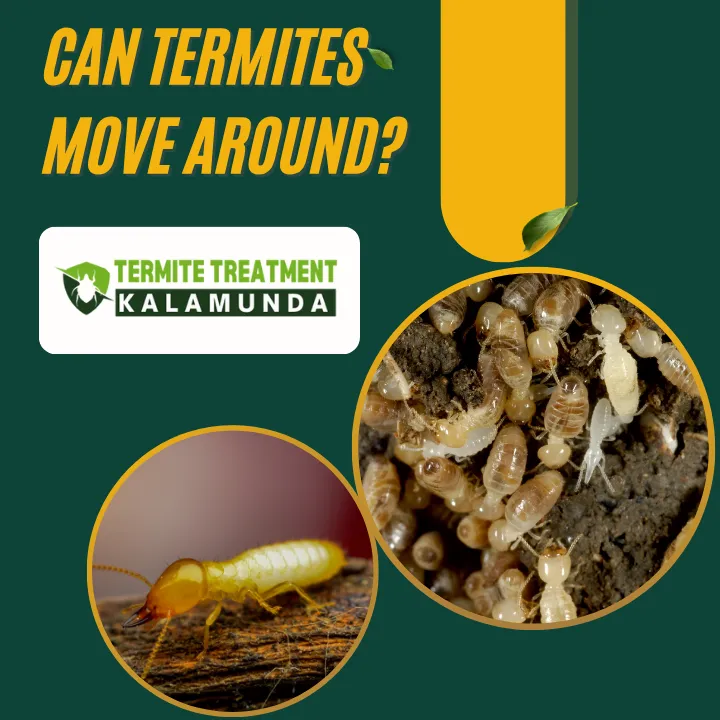
Can the termite pest travel?
While DIY solutions like traps, gels, and sprays may work on ants or cockroaches, they’re often ineffective against termites. That’s because termite colonies live underground, out of reach from over-the-counter solutions. Attempting to handle an infestation yourself can worsen the problem or expose your family to harmful chemicals.
Professional termite control involves certified specialists using thermal imaging, safe chemical treatments, and precise application techniques. They also perform detailed inspections and apply termiticides strategically after assessing your home’s risk areas.
Ignoring termite issues can result in major structural damage. Termites feed 24/7, chewing through beams, frames, and panels eventually weakening your home’s foundation. Their droppings may also trigger allergies or asthma, especially in children.
Is Your Termite Treatment Actually Working?
Termite treatments can be costly, often reaching into the thousands depending on property size. That’s why it’s vital to ensure your treatment is effective. After treatment, monitor your home for signs of re-infestation, including:
Mud tubes on walls
Peeling or bubbling paint
Flying termites (alates) near windows
Dusty or weakened surfaces near door frames
Cracks in walls
Doors and windows that don’t close properly
A proper yearly inspection ensures the infestation stays under control.
Where Do Termites Hide in Your Home?
Termites are masters of concealment, preferring dark, humid spaces out of plain sight. Here are common areas where they build nests:
Garden areas: Logs, tree stumps, shrubs, fences, and wood debris
Furniture and wooden structures: Door frames, beams, and built-in cabinetry
Flooring and walls: Especially those showing unusual sounds, like clicking or “head banging”
Wallpaper: Look for bubbling, warping, or scratching noises
4. Simple Termite Prevention Tips
Prevention is always better than cure. Use these tips to protect your home:
Keep areas dry and fix leaks immediately
Ensure proper ventilation and use dehumidifiers
Avoid excessive use of wood in your interiors
Clear out wood debris and infested plants from your garden
Schedule routine inspections with a licensed pest control company
Choose the right treatment plan based on your termite species and home type
Flying termites (swarmers or alates) are often seen near lights. Discarded wings near window sills are a strong sign of infestation. Unlike carpenter ants that tunnel through wood, termites actually consume it.
Questions to Ask Your Termite Specialist
Before hiring a pest control provider, make sure you ask:
How long has the company been operating?
Do they offer warranties and how long are they valid?
What type of active ingredients do they use?
Are the products safe for pets and children?
What post-treatment monitoring is provided?
Are there yearly inspection services included?
What termite species do they target?
What signs should I watch for after treatment?
Can Termites Spread to Other Homes?
Yes. Termites can move underground and extend their reach to neighboring properties. Here’s how they travel:
Through mud tubes
Underground tunnels up to high-rise units
Wood piles, mulch, or decayed logs
Cracks and crevices in walls and foundations
If your neighbor has an infestation, your home could be next. Preventative treatment can help you avoid a larger problem.
When Should You Call a Termite Specialist?
Waiting is not an option when it comes to termites. Even early infestations can escalate quickly. Experts recommend scheduling a termite inspection as soon as you suspect an issue.
Microwave and thermal scanning technology helps detect termite activity early. The sooner you treat the problem, the less damage and cost you’ll face in repairs. Pre-purchase, rental, and property sales are also good times to conduct termite checks.
Why Are Termites So Hard to Eliminate?
Termites are resilient pests due to:
Their hidden nesting habits
Species misidentification
Ineffective DIY solutions
Constant availability of food (wood)
Delayed response by homeowners
Inadequate treatment methods
To effectively eliminate termites, you need professional equipment, training, and active ingredients designed to target the colony, something that off-the-shelf products cannot achieve.
Effective Termite Treatment Options
Depending on your property type, your options may include:
Termite Baiting: Above or in-ground bait stations lure termites to ingest a slow-acting poison that spreads through the colony.
Soil Injection: A perimeter is treated by injecting termiticide into the soil at regular intervals.
Drywood Termite Foaming: A foaming solution is injected into holes in affected wood to penetrate the colony.
For apartments, baiting and wall treatments are often used. For landed properties, a mix of baiting and soil injection provides broader coverage.
FAQ: Termite Questions Answered
What types of homes are most vulnerable?
Homes with poor ventilation, high humidity, wooden interiors, gardens, or gaps in structure are more likely to be infested.
How do termites damage homes?
They chew through wood, weakening structural integrity and aesthetics. Mud tubes, dust, and warped paint are common damage signs.
How are ant nests different from termite colonies?
Ant nests are usually visible mounds. Termites build hidden mud tubes made of soil, droppings, and saliva, which are harder to detect and remove.
What should I expect during drywood termite treatment?
Expect preparation like clearing space, protecting valuables, and temporarily vacating pets and children. Professionals will apply foam into key areas.
How do specialists treat termites?
They begin with a risk assessment, choose the right method based on species and location, and provide ongoing monitoring post-treatment.
What should I do if I find termites?
Take photos, don’t spray, and call a specialist immediately. Avoid disturbing the area to prevent the colony from scattering.
Need help with termites? Schedule a professional inspection today to protect your home before the damage gets worse.
Ace Termite Treatment Kalamunda offers all pest control services in Kalamunda and surroundings. Feel free to contact us at (08) 6275 6540 or visit our website:
